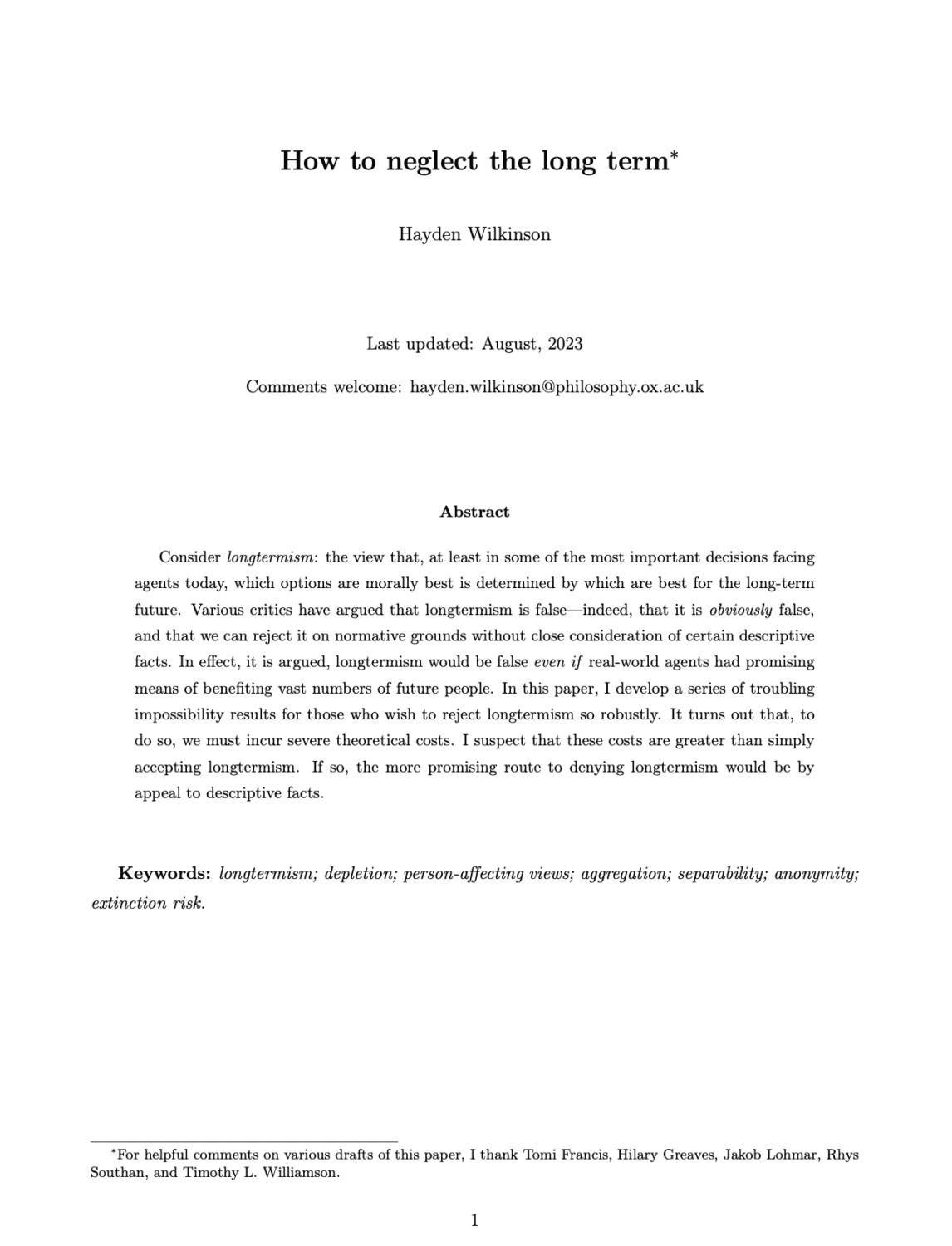WOOOOOOO MORE AXE GRINDING LETS GO!
Okay enough of that, so I was doing a little bit of a foray into the GPI cesspit to look at the latest decision theoretic drivel they’ve been putting out recently. And boy oh boy did I come across something juicy.
Basically this 36 Page paper is one big ‘nuh uh’ to all the critics of longtermism. Think Crary and the like; it explicitly states that critics dismiss longtermism out of hand by denying broadly utilitarian principles. This is all fair enough, but the the philosopher tries to defend longtermism by saying that denying it on broadly normative grounds incurs ‘significant theoretical costs’. I’ve checked what these ‘costs’ would be and to may admittedly quite dumb eyes they look like they’re only be ‘costs’ if you are a utilitarian in the first place! The entire discussion is predicted on utilitarian principles, the weighing of theoretical costs and benefits the consistently bullshit new principles and what I’ve always thought were completely as hoc new rules that they make up to make anything fit the criteria and get longtermism out the ass end as well making the discussion impervious to criticism cos insert brand new shiny principle here it’s fucken dumb.
Not to overstate my case, I’m kinda dumb, which means I could be very wrong here, but even with that in mind I woulda expected better from a PhD.
Anyways to end off, are there any resources that actually go through their math and fact check that shit? Actually wanna see if the math they use actually checks out or if it’s kinda cobbled together.



@mountainriver Uh, yeah, no. It’s more that it’s a massive university which is seen as a very prestigious place for various people with money to splash it about funding research institutions or whatever and because government funding for higher education and research is in a dire state they’re very enthusiastic about taking the cash. It’s also got a whole lot of weird little colleges and private halls. The military types who did the colonialising wouldn’t have dreamed of wasting time on higher education - straight from Eton or Harrow to Sandhurst and a commission in their father’s old regiment. Orwell went straight from Eton to the colonial police in Burma.
This was no doubt true for the purely military arm of the British imperial project, but at least for India the Indian Civil Service was associated with higher education. And these were the types who’d feel the need to justify their rule, unlike the soldiers who’d rely on the Maxim gun.
That and the gentry that made a lot of the officer class also had brothers who, going into the clergy, parliament or administrative roles, would be university-educated.
@gerikson Yeah, that’s a point well made. In this particular instance - did a bit of digging and the “Global Priorities Institute” is funded by… Open Philanthropy, which is run by… EAs. Lordy.
@mountainriver (Another great example is Churchill - went to Harrow and his father had decided he was joining the army so he was put in the “army form”, which existed solely to prepare them for the Sandhurst entrance exams. Still took the old racist three tries to pass)